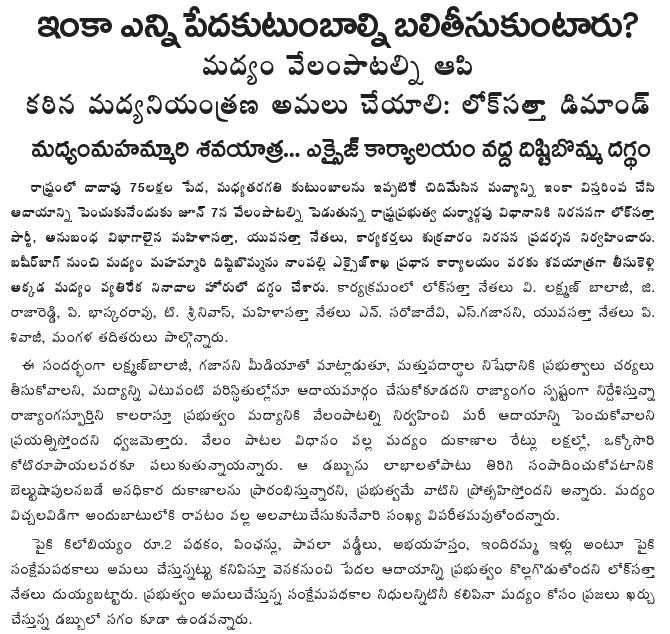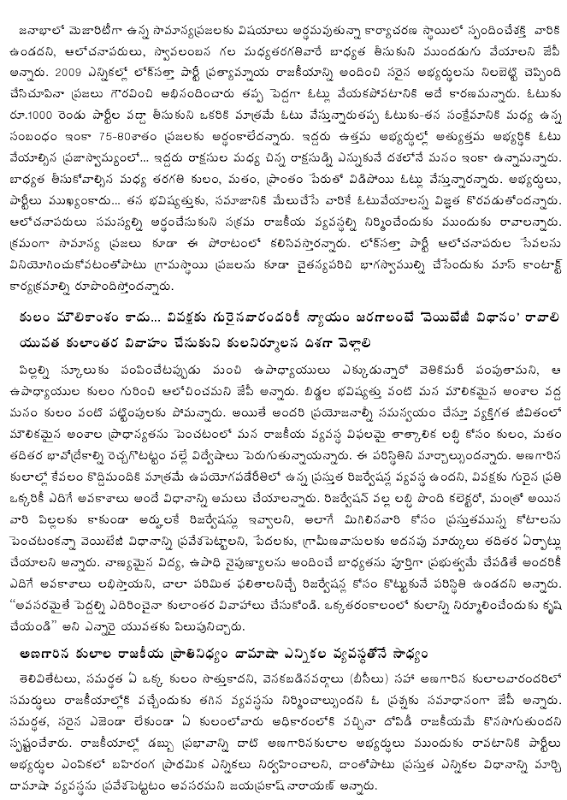Ward committee election a Mockery: Lok Satta
Traditional parties have made a mockery of election to ward committees in the Greater Hyderabad Municipal Corporation (GHMC), charged the Lok Satta Party here today.
The Government contemplated constitution of ward committees to enable people in a ward to have a say in resolution of local problems. In the ideal situation, the committees should have been elected by local people. Instead, the Government opted for election of ward committee by all the members of the GHMC Council.
Talking to the media, party leaders V. Vijayender Reddy and Mrs. N. Sarojadevi said that the very system of election by all the municipal corporators was flawed. A corporator representing say Dilsukhnagar is incompetent to choose members of say the Kukatpally ward committee. As a result, the corporators, MLAs and MPs packed the ward committees with their nominees, throwing to winds the norms like choosing representatives of civic society organizations, women, and NGOs.
The party leaders pointed out that in contrast the Lok Satta proposed constitution of ward committees by election so that they could function as local governments in their wards. The Lok Satta even proposed a per capita grant of Rs.1000 to every ward so that the elected ward committee could utilize the money to resolve local problems.
The Lok Satta Party leaders referred to Mayor Kathika Reddy’s comment that spouses of all the woman 52 corporators were being present on the corporation premises and asked whether the elected women members had become the rubber stamps of their husbands.




